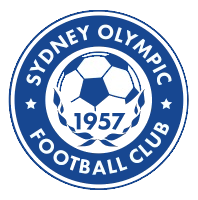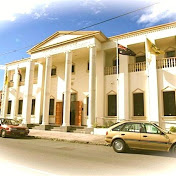THIS CITY IS OURS!
So read the provocative banner on Copacabana beach amongst the tens of thousands of manic Argentinian supporters who infiltrated Rio de Janeiro in the days leading up to their nation’s opening World Cup match against Bosnia-Herzegovina.
As easily identified by their ear-piercing horns as the famous light blue and white strip of their football team, the mob became so uncontrollable at one point that local policia had to use pepper spray to stop some from crowding onto the Avenida Atlantica.
Argentina might temporarily have hold of Rio de Janiero, but will Lionel Messi and Argentina take hold of the World Cup next month?
The result was a 2-1 victory over a brave Bosnia at a heaving Maracana, Brazil’s answer to the Colosseum that had also been hijacked by its bitter South American rival, for this night at least.
But just as everything Brazil does is seen through the prism of Neymar right now, so it is with Messi.
“The Maracaná was impressive,” he said. “I had no doubt that it would be like this. It was incredible how the people cheered for us. We know it will be like this in Belo Horizonte and Porte Alegre. We have to keep looking for our dream.”
After Neymar’s two-goal, man-of-the-match performance in the tournament opener against Croatia, this was his Barcelona teammate’s opportunity to respond.
Bosnia-Herzegovina conceded an own goal after three minutes, from a Messi free-kick, but from then on the first half was more strangulation than an expected exhibition from one of the teams widely tipped to be in this stadium again for the final on July 13.
No player felt the suffocation more than Messi, with two or three defenders pouncing on him each time he had a sniff of the ball.
Midway through the second half, the Argie fans were also starting to feel the choke. Maybe the city wasn’t theirs.
Cutaway shots were shown on the big screen of some supporters. It was breaking news: they were mute.
Then the ubiquitous siren call across the football globe – Ole! Ole! Ole! Ole! – went up, and right on cue, Messi delivered.
The move started from near halfway, and by the time Messi was on the edge of the box, he wrong footed two defenders before his left-foot bullet found the post and Argentina had its second.
As mesmeric as it was, the goal was only his second at a World Cup, and it’s for that reason that experts insist he is shouldering as much pressure as Neymar here in Brazil.
The comparisons to Maradona, who effectively won the World Cup single-handed for Argentina in 1986, are becoming tiresome but are unavoidable.
He has been crowned World Player of the Year no less than four times, but Messi himself has made it clear there is only one title that matters.
“It is hard not to feel honoured when important people compare you with Maradona – he’s the best there’s ever been,” Messi has said. “My message, though, is please don’t compare me with him yet. He won a World Cup for our nation, and until I’ve managed to do the same the comparisons are not something I welcome or accept.”
Intriguingly, Messi wasn’t the brightest star on display on Sunday night.
The other one was the Estádio Jornalista Mário Filho, and she was also making her first appearance of the tournament.
Close to 200,000 fans packed into the Maracana for the final in 1950, when Brazil’s unexpected defeat to Uruguay sent the country into mourning for, well, decades if you believe what some say.
A crowd of 74,739 converged on the stadium for this match, and their presence drowned out a protest march of about 200 who tried to storm the stadium before police silenced them with tear gas and stun grenades.
You would need stronger ammo than tear-gas or pepper spray to silence the Messi worshippers.
When it was all over, the Argentinian fans were as loud leaving the Maracana as they had been on Copacabana in the days before.
Messi was rightly named man of the match, just as Neymar had been in Sao Paulo four days earlier.
It would be a dream for all concerned if the pair meets in this same mythological place in a month.
Messi will be chasing history, instead of Maradona’s shadow, but he is not thinking of himself.
“I promise the fans to play better,” he said. “And bring the win for them.”
source: smh.com.au


















